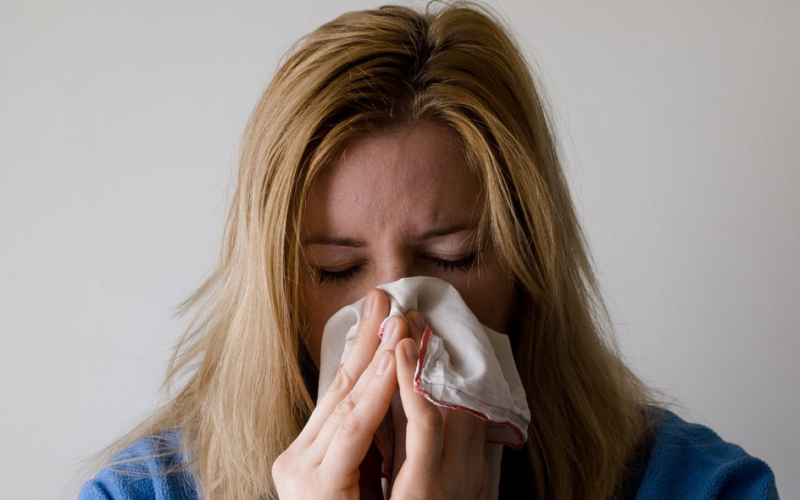Some people sneeze even when they are not sick, and most people think they have a cold, so they don’t care about it. It may be allergic if a person is not sick but continues to sneeze, runny nose, or itchy skin!
San Francisco, CA (Business Northeast) – An allergy is an overreaction of the immune system to certain substances. Life is full of sources of allergies. Some people are allergic to eggs, milk, nuts, and some are allergic to dust or pollen. Everyone has different sources of allergies and allergic symptoms. People must recognize them and take preventive measures.
What is an allergy?
When people prone to allergies come into contact with allergic sources, they will produce excessive amounts of immunoglobulin E, stimulating the body to produce excessive inflammation and allergic symptoms. For example, eczema, gastrointestinal discomfort, allergic rhinitis, and allergic asthma. If severely may lead to death.
In addition to genetics, the external environment is also the key to triggering allergies. For example, high humidity and temperature in subtropical areas can easily cause skin and respiratory allergies, especially in humid areas. Humidity increases body secretions and may also block skin pores and cause repeated allergic symptoms.
Why are people allergic?
Allergy is a kind of inheritance. If parents have allergies, children’s chances of allergies will increase greatly, and allergic reactions may be more severe than those of children whose parents have no allergies. Medical research shows that if one of the parents has allergies, 33% of children will have allergies. If both parents have allergies, the chance of children getting allergies will double to 66%.
For twins, the chance of getting allergies is about 70% for identical twins and 40% for non-identical twins. This means that external factors will affect gene performance, so having the same genes does not necessarily produce the same allergic diseases.
Common allergic foods
Common sources of food allergies in humans are milk, eggs, wheat, peanuts, soy sauce, nuts, fish, and crustaceans. Generally, people’s allergic reactions to milk and beans will decrease with age, but nuts or seafood may persist.
There are many kinds of nuts; which ones are easy to be allergic to? According to research, the ranking of nuts that are likely to cause allergies: peanuts, almonds, sesame, and cashews. Depending on the processing method, the severity of the allergy will be different. The more processing, the most severe allergies usually result.
How to prevent allergies
“Why do my allergies happen repeatedly?” Many people with allergies have this problem. Inflammation or allergies can repeatedly happen, just like a person’s cold symptoms have healed, but the next time he may catch a cold again. Although allergies are relieved after taking medicine or injections, it does not mean that allergies will never occur again.
People with food allergies can prevent allergies as long as they stay away from the food they are allergic to. However, people who are allergic to the environment, such as excessive dust, dust mites, pollen, and moisture, must rely on cleaning the environment, wearing a mask, or dehumidifying. There is no way to eliminate the source of allergies. People must understand what they are allergic to and prepare first aid measures for allergies in advance.










